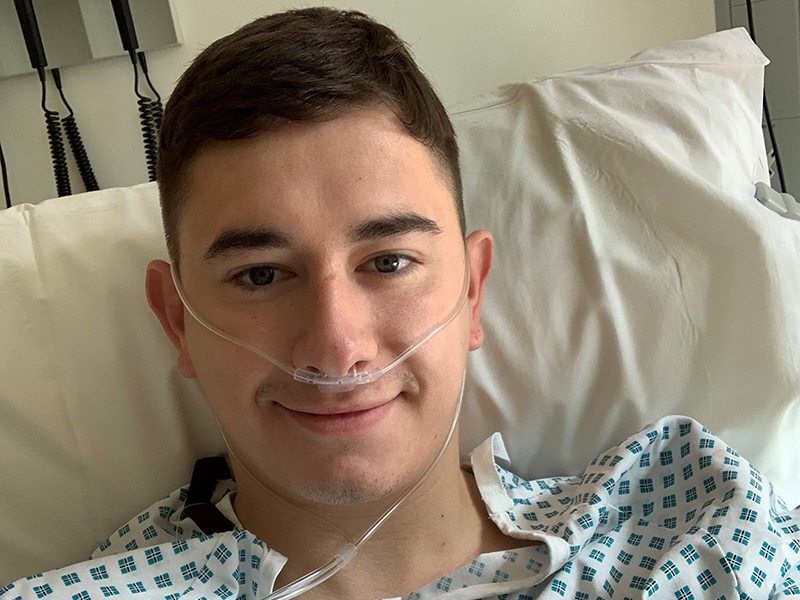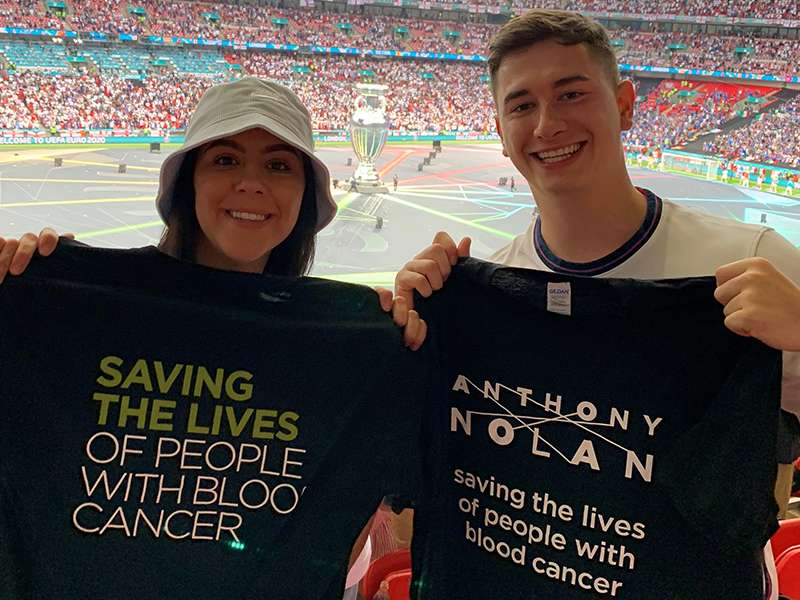Life quickly returned to normal following England's historic defeat against Italy – or as normal as it could with a global health crisis still at large.
It is just weeks since the momentous match, which many seem keen to leave in the annals of football history.
Yet, thanks to a new era of leadership shown by England manager Gareth Southgate and his team of young Lions, there also exists a determination to move onwards and upwards.
Just seven miles away from Wembley Stadium is our Stem Cell Unit. Located in The Duchess of Devonshire Wing, it allows us to treat and care for patients with serious blood disorders and blood cancers.
It is also a stem cell collection centre for peripheral blood and bone marrow donations. Working closely with blood registries including Anthony Nolan, DKMS and the British Bone Marrow Registry (BBMR), we collect over 700 donations every year in order to treat – and even cure – people with blood disorders.
While football and stem cell donation might not seem a likely pairing, that all changed when 24-year-old Sam Astley walked through our doors.
The power of the internet
Despite being a huge football fan, Sam had given up tickets to the Euro semi-final at Wembley, which saw England defeat Denmark, so that he could donate bone marrow at The London Clinic.
His partner, Beth Hill, had won the tickets in a competition and both had been looking forward to “a once in a lifetime opportunity”.
However, Sam, who had joined the donor registry with Anthony Nolan, turned the tickets down without hesitation when he received the call to say that a patient in need of his bone marrow had been found.

“Life is more important than a football game at the end of the day. No football game beats saving someone’s life,” he said.
He travelled to London from his hometown of Sedgley, West Midlands, on Wednesday 7 July, the day of the match, with the procedure taking place on Thursday morning.
After being interviewed for local newspaper The Stourbridge News, the story quickly picked up momentum online, with many suggesting that “hero” Sam should be gifted tickets to the final for his selfless act.
Fortunately, the internet prevailed. BBC football presenter Gary Lineker tweeted Sam’s story to his 8 million followers – and the rest is history. Sam and Beth were awarded tickets to the final.

While they didn’t get the win they had hoped for at Wembley, Sam and Beth certainly made a huge difference in raising awareness for stem cell donations.
They were interviewed by many major news outlets, highlighting how easy and painless Sam’s time in hospital was, and the responsibility he felt in knowing that his donation will save somebody’s life.
Sam’s story is certainly eventful, but he is by no means alone in calling for young men to join the donor registry.
Football in action
Every year over 12,000 people die from blood cancer in the UK, and it is the most common form of cancer in children. The need for life-saving stem cell donations far outstrips supply.
Donations from young men are particularly in demand – though this group is least likely to join the registry. Men aged between 18 and 30 make up only 7 per cent of UK donors.
DKMS hopes that by engaging young men through football, all that could change. The blood cancer charity brought together two of its ambassadors in conversation with The Sunday Times to discuss the role of football in encouraging people to sign up.
Anton Ferdinand, a former Premier League footballer, and Professor John Gribben, a consultant haematologist at The London Clinic, share the belief that misconception about donating stem cells is preventing people from signing up.
A fear of needles and of blood is linked to hesitancy in young men, along with worries over recovery time. Getting footballers involved could be a solution.
“People need to understand it’s not a long process,” Mr Ferdinand says. “We need to attack the narrative that exists and change it.”
Meanwhile, Professor Gribben highlights the good feeling of donating. If a player or a young person has saved a life, he would certainly be more mentally energised.
“Everyone I know who comes to donate stem cells feels very good about themselves and what they have done, as they should. We can’t underestimate the wellbeing feeling,” he says.
He also goes on to explain that football clubs should be encouraged to take part for another reason – to promote donations from ethnic minorities, as well as young people. Ethnic minorities have a 20 per cent chance of being matched whereas someone with a North European background has a 70 per cent chance.
“The more donors that come from an ethnic minority background, the more we are fulfilling the real unmet need,” Professor Gribben says. “It restores my faith in human nature [when people donate].”
“People in the public eye, we’re not the heroes. The people who save lives are the heroes,” adds Mr Ferdinand. “I'd love to be part of that. I’ve not been matched yet.”
Further information
- Read Sam’s story in The Stourbridge News
- Read the original article in The Sunday Times
- Discover more about our Stem Cell Unit